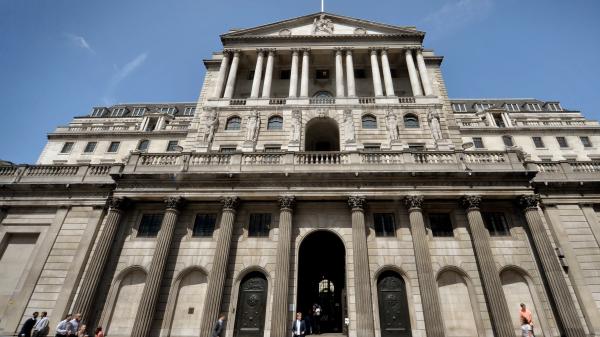Now is not the time to criticise the Bank of England’s independence

The world’s central banks have printed huge sums of money to buy assets to support the global economy. However, quantitative easing has attracted its fair share of critics, including the prime minister and former foreign secretary. Many claim that QE is ineffective and only benefits the wealthy. As former central bankers, we find this debate perplexing. QE works just fine.
Central banks normally support the economy by reducing the policy rate, which then feeds through into the interest rates that banks offer on deposits and loans and then into the wider economy. But if banks cannot reduce the interest rate they pay on deposits into negative territory, then at some point they will no longer be willing to pass cuts in the policy rate into lending rates. At that point, central banks need an alternative way to stimulate the economy, and that is where QE comes in.
It turns out that QE and cutting the policy rate influence the economy in much the same way. Both work their monetary magic largely through financial markets. In both cases long-term interest rates fall, the currency depreciates and assets from shares to property increase in value. Households and companies will be encouraged to spend more today relative to tomorrow thanks to lower interest rates, and households and companies everywhere will be encouraged to spend more on output produced here, relative to abroad, thanks to a cheaper exchange rate. And spend they did. When central banks launched QE their economies recovered and unemployment fell.
Veiled criticism risks spooking overseas investors scrutinising the UK economy
The criticism of QE that all it does is inflate asset prices to the benefit of those at the top is misplaced on a number of levels.
For a start, if QE mimics the impact of cuts in the policy rate, then the critics have a problem with loose monetary policy, rather than QE in particular. A huge package of rate cuts instead of QE would still have benefited those at the top by pumping up asset prices.
Moreover, the economy would have been much weaker and unemployment much higher in the absence of QE. The difference between having a job or not has a much larger proportional impact on living standards at the bottom of the income distribution than higher asset prices have at the top. Savers would have been worse off too. They rely on the income from past investments in bonds and shares and those payments would have been at greater risk in a weaker economy.
The fundamental problem is that a small fraction of the population owns a disproportionately large share of the assets in the economy. Fixing the economy will disproportionately benefit those people no matter how you do it, because the value of their assets is tied to the health of the economy. Also keep in mind that QE is not the main reason why asset prices have increased. The fundamental driver is a global glut of savings, with too much money chasing too few investment opportunities.
Does this mean we have to put up with an unequal society? No, but we shouldn’t look to the Bank of England to fix the problem. It is politicians, not central banks, who have the tools and the mandate to fine-tune the distribution of income or wealth.
If Mrs May wants to do something concrete about inequality then she should encourage her chancellor to put more money in at the bottom via Universal Credit and take more money out at the top through higher taxes.
In the meantime, veiled criticism of the Bank of England risks spooking overseas investors who are asking searching questions about the UK economy.
There is no good time to threaten the independence of your central bank, but doing so when you are borrowing money hand over fist and about to impose trade barriers on yourself is probably the worst time.






